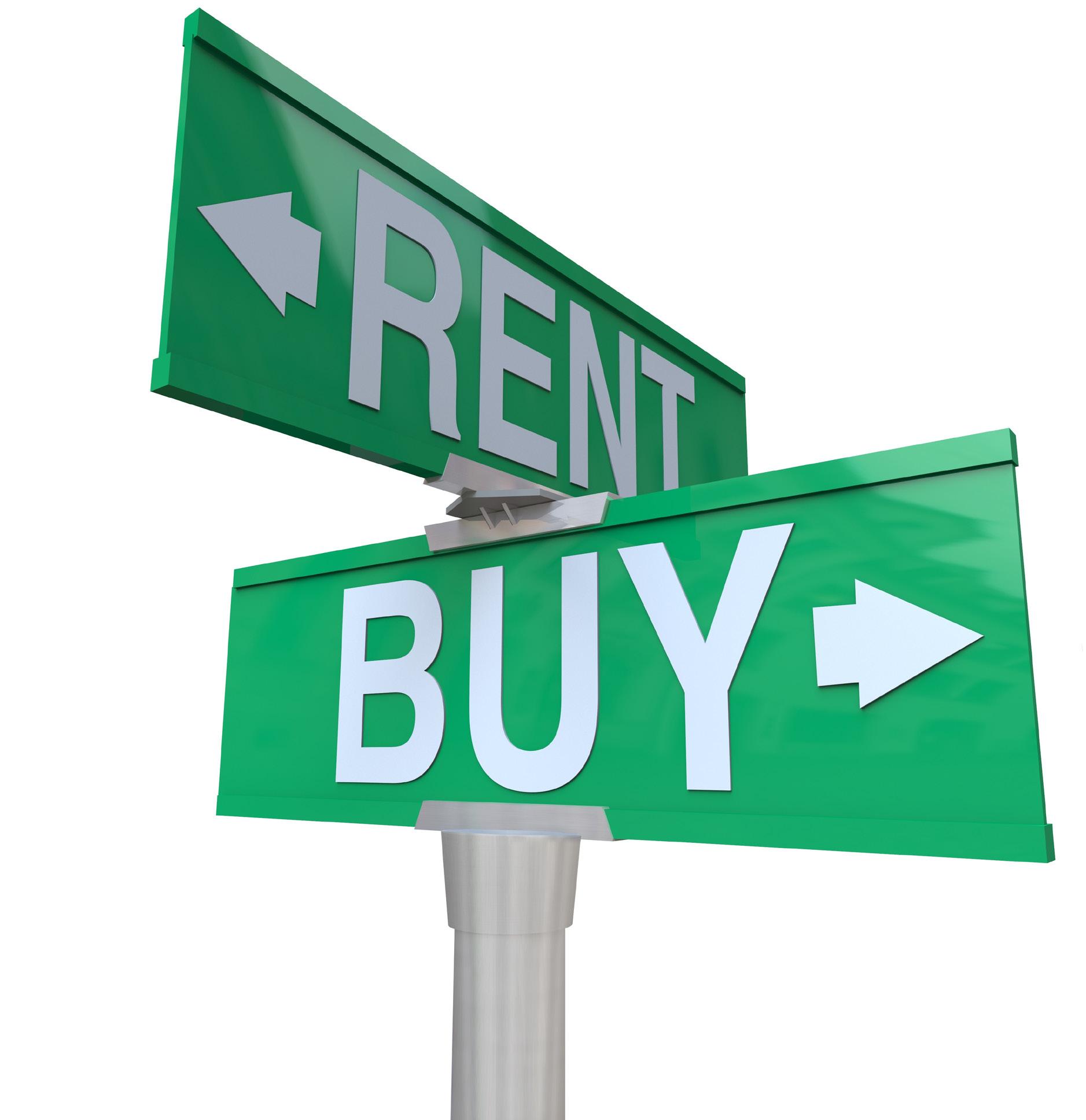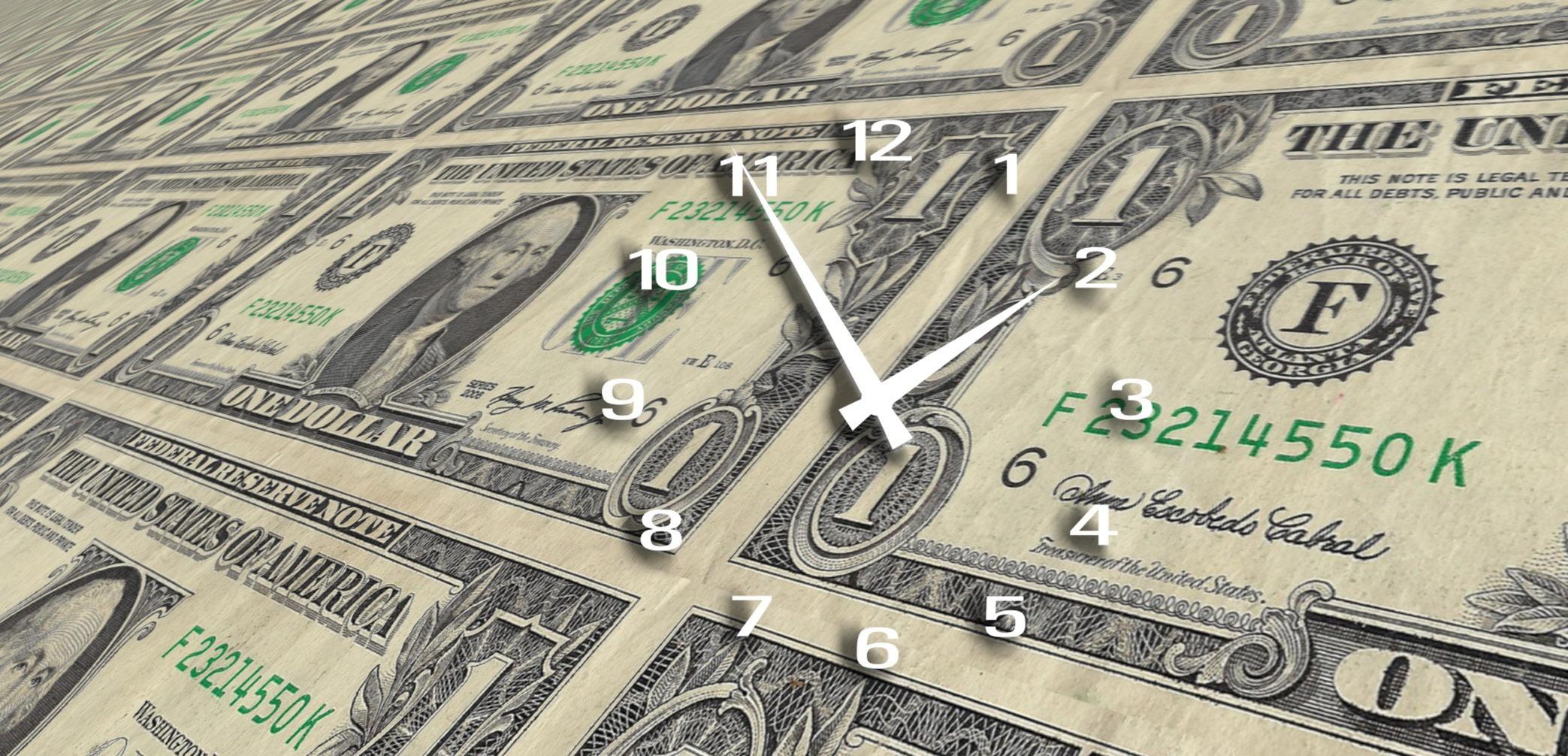
10 minute read
6 ways a buyer mess up when getting a
Eric Hooks

6 WAYS A BUYER MESSES UP WHEN GETTING A MORTGAGE
Getting a mortgage to buy a home is a big decision that requires proper planning. If done rightly, you’ll get a good home for a reasonable price. Many home buyers, especially newbies, often mess up and get into the wrong deal. However, it doesn’t matter whether you’re a first time home buyer or you’ve bought a couple of homes in the past; you can still mess things up. This is why you need to understand how things should be done correctly. Avoid the following six mistakes when getting a mortgage:
NOT PATRONIZING A LOCAL MORTGAGE COMPANY
One of the smartest moves to get the best mortgage service is to patronize a local mortgage provider. Such a mortgage provider will understand the real estate market in the locality. This is what top real estate investors do. They look out for local mortgage companies within the locality of where they need property and deal with such a company. For instance, if you need a California property, the right move will be to patronize the mortgage providers in California and not one from other states or cities. If you don’t know where to go or how to find the right local mortgage provider, you can reach out to top real estate agents in the neighborhood. They’ll have recommendations for you.
Another way buyers mess up when getting a mortgage is not understanding the terms and conditions of the mortgage lender they’re dealing with. Often, this is due to assumptions. They think the terms of all lenders are the same. If they recently dealt with a mortgage lender, they automatically assume that the lender’s terms are the same for other lenders. This is a terrible mistake that you should avoid. Ask your mortgage lender to define in clear terms to you their conditions.

ADDING TOO MUCH DEBT
This is a significant reason why many home buyers are being denied loans. During the process of obtaining a mortgage, they begin to add too much debt. As such, they will tamper with their Debtto-income ratios. If a mortgage lender sees too much debt higher than what a buyer’s income can afford to pay, they might deny such a buyer the opportunity to get a mortgage. This is a mistake you should avoid when getting a mortgage.
SPENDING TOO MUCH ON A HOME
Legally, mortgage lenders can provide you with a mortgage of up to 35% of your household income. This is where many home buyers get it wrong. They get a high mortgage ignoring the fact that other expenses must still be met from their pay. With a high mortgage, their monthly income will be significantly affected. Before they know what’s happening, the household is left with little to spend after the high mortgage has been removed. The mistake of getting a high mortgage can result in a financial crisis and make a household poor.
IGNORING CREDIT SCORE
This is one of the terrible mistakes homebuyers make when seeking a mortgage. Your credit score and history can go a long way in determining whether you will get a loan or not. If your lender is not satisfied with your credit history, you may be denied a mortgage. Therefore, before patronizing any mortgage lender, ensure that your credit score is in order.
Not Considering The Cost Of Owning A Home When you decide to get a mortgage to purchase a home, you should also consider other expenses. Besides sorting your mortgage every month, you’ll also need money for maintenance. Many homebuyers don’t look in this direction when getting a mortgage. Thus, they end up running into a financial crisis.
References
https://www.rochesterrealestateblog.com/12-mortgagemistakes-avoid-buying-home/ https://www.interest.com/mortgage/the-7-biggest-mortgagemistakes/
www.StopHigherPropertyTaxes.org

Split-Roll Property Tax Measure Hurts Immigrant and Minority Communities Background: Prop 13 Has Helped All Californians for More Than 40 Years
• For more than 40 years, Prop 13 has provided certainty to homeowners, farmers and businesses that they will be able to afford their property tax bills in the future. Under Prop 13, both residential and business property taxes are calculated based on 1% of their purchase price, and annual increases in property taxes are capped at 2%, which limits increases in property taxes, especially when property values rise quickly.
Split-Roll Property Tax Measure Destroys Prop 13 and Makes Our Economic Crisis Worse
• Amid an unprecedented economic crisis, special interests submitted petitions to qualify a measure for the
November 2020 statewide ballot that will destroy Prop 13’s property tax protections and will be the largest property tax increase in California history. The measure will raise taxes on commercial and industrial property by requiring reassessment at current market value at least every three years. This type of property tax is known as a “split-roll tax” because it splits the property tax roll, assessing business property differently than residential property. • We should reject this measure and maintain Prop 13 protections that have kept property taxes affordable and provided every taxpayer who buys a home or business property with certainty that they can afford their property tax bills in the future. Now is not the time to raise taxes and bring more uncertainty to businesses and all Californians.
Gentrifies Our Longtime Communities
• A split-roll property tax will provide a huge financial incentive for local governments to approve business projects to replace existing housing so they can receive higher property tax revenue. It will also push small minority- and immigrant-owned businesses out of our communities when they can’t afford the higher property taxes. This unintended consequence will intensify the gentrification already occurring in much of the Bay Area and Southern
California coastal counties.
Hurts Small Businesses and Consumers
• Most small businesses rent the property on which they operate. The measure’s higher property taxes will mean soaring rents at a time when the federal and state government is trying to provide small businesses with rent relief to keep their doors open. Ultimately, the measure’s tax hike on businesses will get passed on to consumers in the form of increased costs on just about everything people buy and use, including groceries, fuel, utilities, day care and health care.
Hits Minority-, Immigrant- and Female-Owned Businesses the Hardest
• Small businesses are already struggling. This measure will make it even more difficult for them to reopen their doors or stay in business as a result of this economic crisis. Increasing property taxes on businesses by up to $12.5 billion a year will hurt female- and minority-owned businesses the most and 120,000 jobs will be lost, according to a
Berkeley Research Group study. Voters are being asked to consider a measure that will only increase job losses at a time when millions of Californians are applying for unemployment benefits. • According to the latest data from the Harvard Business School, about 42% of new companies are founded by immigrants in California and the most recent 2012 Survey of Business Owners by the Census bureau found that 5% of businesses in the state are owned by African Americans. Additionally, the California Latino Economic Institute found that nearly one-quarter of all businesses in California are owned by Latinos, and they are the fastest-growing component of the state’s economy. Most of these businesses start small and stay small, meaning they often rent their property and are subject to higher rents when property taxes increase. • In the most recent 2012 Survey of Business Owners by the Census Bureau, 38% of all non-publicly traded businesses were owned by females and another 9% were owned equally by females and males.
Increases the Cost of Living for Everyone and Makes the Homelessness Crisis Even Worse
• In 2019, US Housing & Urban Development data showed California led the nation with more than one-quarter of the country’s homeless population. • California’s cost of living is already among the nation’s highest. We shouldn't do anything to make it even more expensive to live here. The split-roll measure will only increase homelessness and make life more difficult for
Californians already living paycheck-to-paycheck.
Homeowners Are Under Attack
• If businesses lose their Prop 13 protections, homeowners will be next. Supporters of the measure even admitted that this initiative was the first step in a plan to end Prop 13, which could mean skyrocketing property tax increases for all California homeowners.
Ad paid for by Californians to Save Prop 13 and Stop Higher Property Taxes, sponsored by California homeowners, taxpayers, and businesses Committee major funding from Western Manufactured Housing Communities Association California Business Roundtable California Taxpayers Association Funding details at www.fppc.ca.gov


Briana Frazier

WHITTIER & LA HABRA: WITH HOUSING SO EXPENSIVE IN LA, MAYBE RENTING IS NOT THAT BAD AFTER ALL
Los Angeles is one of the most expensive places to reside in California and even in the United States. Home prices in the city are one of the most expensive in the US. For this reason, many residents are often stuck between whether to purchase a home or to continue paying for rentals.
Several analysis has been done by real estate professionals in this regard with some in favor of rentals and others in favor of purchases. The truth is that they both come with their advantages and disadvantages. For instance, if you get a mortgage to purchase a home in Los Angeles, you’ve made a significant investment that will yield in the long run. Once you sort your mortgage, you can decide to sell the house at a better price; then, you can purchase another property of your choice at a cheaper rate. However, such a decision comes with a great sacrifice. You won’t be able to meet some of your expenses again if your income remains the same. A significant portion of the income will go for a mortgage, and you won’t have much to spend.
Therefore, the decision to either stick to a rental or purchase a home depends on individual circumstances and perspective. Nevertheless, there was a report by Attom Data Solutions — a real estate analyst. This report revealed that renting is a better option for buying in Los Angeles and several other notable cities. According to the report, a three-bedroom apartment in Los Angeles costs about $630,000. According to him, a 3.5% down payment for a house in Los Angeles will cost $3,062 per month if the interest rate remains unchanged. Therefore, if you decide to purchase a three-bedroom apartment in Los Angeles with a median price of
$630,000, you’ll have to pay $3,062 as a mortgage.
Now, here’s the kicker. That money doesn’t include mortgage insurance and property tax. If you add the two payments with the mortgage, your monthly expenses will skyrocket. What if you decide to rent a property? Attom Data Solutions further explained that renting the same three-bedroom apartment in LA isn’t cheaper as well, but it’s fairer. He explained that renting a three-bedroom apartment in LA cost about $2,593 monthly. This doesn’t come with mortgage insurance and property tax that you pay as a homeowner.
According to the United States Census Bureau, the median household income in Los Angeles is $62,474. If a family with a household income of $62,474 rents a three-bedroom apartment, they’ll be required to pay about 50% of their income on housing. On the other hand, if they decide to go for the purchase option and purchase the three-bedroom apartment, about 86% of their earnings will be used to sort mortgages.
The report suggested that rental is better for residents of Los Angeles than buying a home. However, an essential point the report failed to address is that with every monthly payment of those who purchase a house, they get closer to permanently owning the house. Rentals, on the other hand, have no hope of owning the home. The landlord may also decide to let go of them for any reason; hence, they may have to find a new location to reside.
Now you’ve seen things from both perspectives. The decision to buy or rent a house is a critical one, especially in a city such as Los Angeles. However, if you sit back and analyze your expenses, you can choose for yourself the most suitable one.
References
https://la.curbed.com/2019/1/16/18184394/rent-buy-losangeles-which-is-cheaper https://la.curbed.com/2018/4/24/17272564/rent-or-buywhich-is-better-los-angeles












